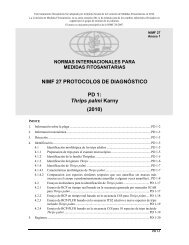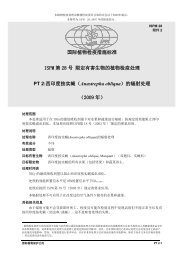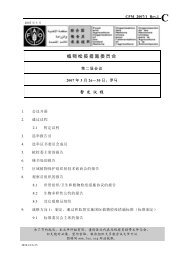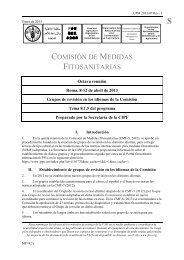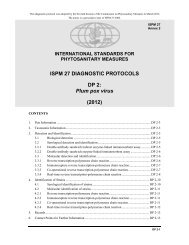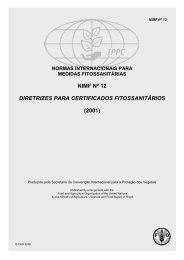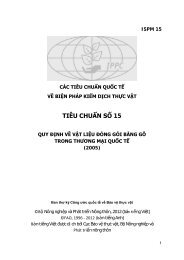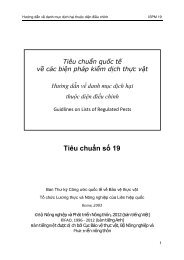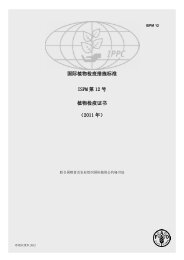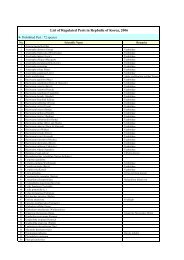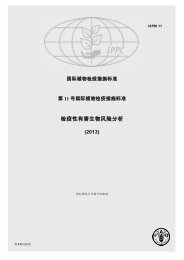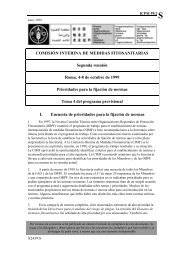Untitled
Untitled
Untitled
Create successful ePaper yourself
Turn your PDF publications into a flip-book with our unique Google optimized e-Paper software.
case (unless there is some special reason for the reporting country to inform only selected<br />
countries).<br />
Non-compliance and emergency action<br />
ISPM 13 provides a detailed explanation of how to report non-compliance, and any<br />
emergency action which is taken as a result. These reports only go to the "countries<br />
concerned". Therefore, there is no obligation to report more generally on the IPP. In future,<br />
the IPP may include a facility allowing such reports to be directed by IPP to specified<br />
countries only.<br />
Emergency measures<br />
Emergency measures (directed at exporting countries) may be applied, often as a reaction to<br />
of pest outbreaks or pest interceptions. They are "Phytosanitary restrictions, requirements<br />
and prohibitions" and can be reported as such. This is equivalent to immediate notification<br />
under SPS Agreement Annexe B, paragraph 6.<br />
Note that emergency actions and/or measures which have only domestic impact are not<br />
subject to a reporting obligation. When a country make a pest report, it is generally in its<br />
own interest to report at the same time the emergency action or measures which have been<br />
applied (cf. above).<br />
Request-driven reports<br />
The IPPC specifies that certain information should be provided by an NPPO to another<br />
NPPO which requests it:<br />
Organizational arrangements for plant protection<br />
Rationale for phytosanitary restrictions<br />
Information on the status of particular pests.<br />
There is no obligation to report this information to any other party, or to the IPP. In future,<br />
the IPP may include a facility allowing such reports to be directed by IPP to the requesting<br />
country.<br />
General information exchange for PRA<br />
The IPPC requires contracting parties to provide technical and biological information<br />
necessary for pest risk analysis, without specifying whether this should be done bilaterally or<br />
multilaterally. This can be entered under the heading "Optional reporting".<br />
Free reports<br />
Countries can report, via the IPP, any other information they wish. They should use the other<br />
IPP facilities to do this and, as far as possible, avoid mixing this information with<br />
information subject to a reporting obligation. For example, there is no obligation to report<br />
the results of general pest surveillance, though many countries do produce regular national<br />
reports on this subject, giving the current pest status of selected pests. Such information can<br />
be entered as a "Publication" or as "News", or else as "Information for PRA".<br />
77




